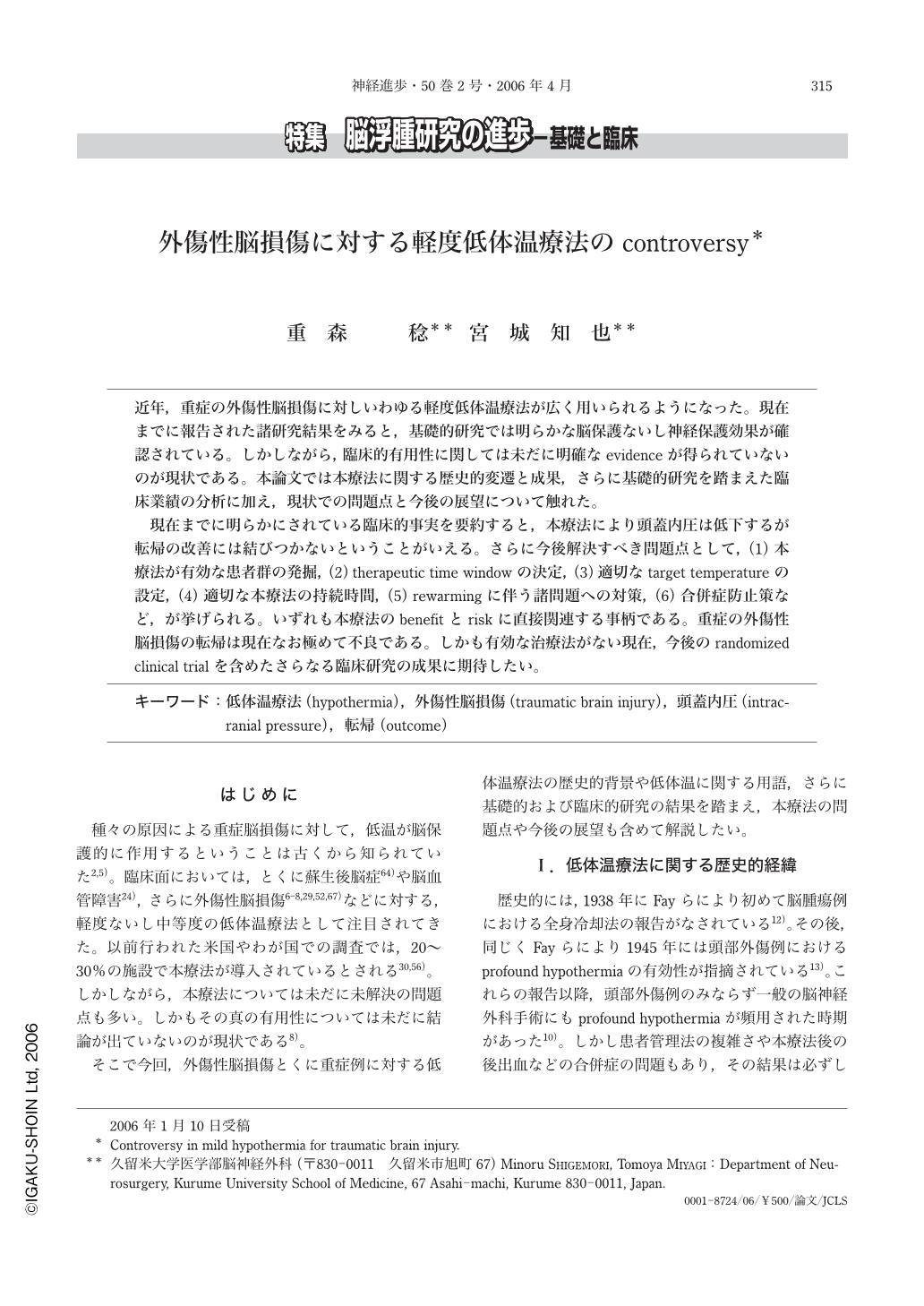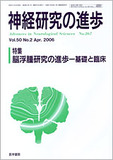Japanese
English
- 有料閲覧
- Abstract 文献概要
- 1ページ目 Look Inside
- 参考文献 Reference
- サイト内被引用 Cited by
近年,重症の外傷性脳損傷に対しいわゆる軽度低体温療法が広く用いられるようになった。現在までに報告された諸研究結果をみると,基礎的研究では明らかな脳保護ないし神経保護効果が確認されている。しかしながら,臨床的有用性に関しては未だに明確なevidenceが得られていないのが現状である。本論文では本療法に関する歴史的変遷と成果,さらに基礎的研究を踏まえた臨床業績の分析に加え,現状での問題点と今後の展望について触れた。
現在までに明らかにされている臨床的事実を要約すると,本療法により頭蓋内圧は低下するが転帰の改善には結びつかないということがいえる。さらに今後解決すべき問題点として,(1)本療法が有効な患者群の発掘,(2)therapeutic time windowの決定,(3)適切なtarget temperatureの設定,(4)適切な本療法の持続時間,(5)rewarmingに伴う諸問題への対策,(6)合併症防止策など,が挙げられる。いずれも本療法のbenefitとriskに直接関連する事柄である。重症の外傷性脳損傷の転帰は現在なお極めて不良である。しかも有効な治療法がない現在,今後のrandomized clinical trialを含めたさらなる臨床研究の成果に期待したい。
Mild Hypothermia(MH)is often used as one of the option in the second-tire treatments for patients with severe traumatic brain injury(TBI). But there is still a lack of clinical evidence on its benefit although many experimental studies suggest clear neuroprotection effects on neurotrauma. The review of the reliable literatures with recent randomized clinical trials and past clinical experiences commonly indicate MH reduce intracranial pressure, but this dose not necessarily improve the outcome of patients with TBI. The risks associated with MH directly influence on the outcomes. At present, clinical problems to be solved will be focused on several topics;appropriate selection of patients, optimum target temperature, time period of maintenance, the methods of rewarming and counter measures of complications. The mortality and morbidity rates of severe TBI are still remained high and every trial on neuroprotective agents also resulted in fail. Among many trials, MH is one of the promising options among new neuroprotective modalities and further well organized randomized clinical trials will be needed.

Copyright © 2006, Igaku-Shoin Ltd. All rights reserved.


